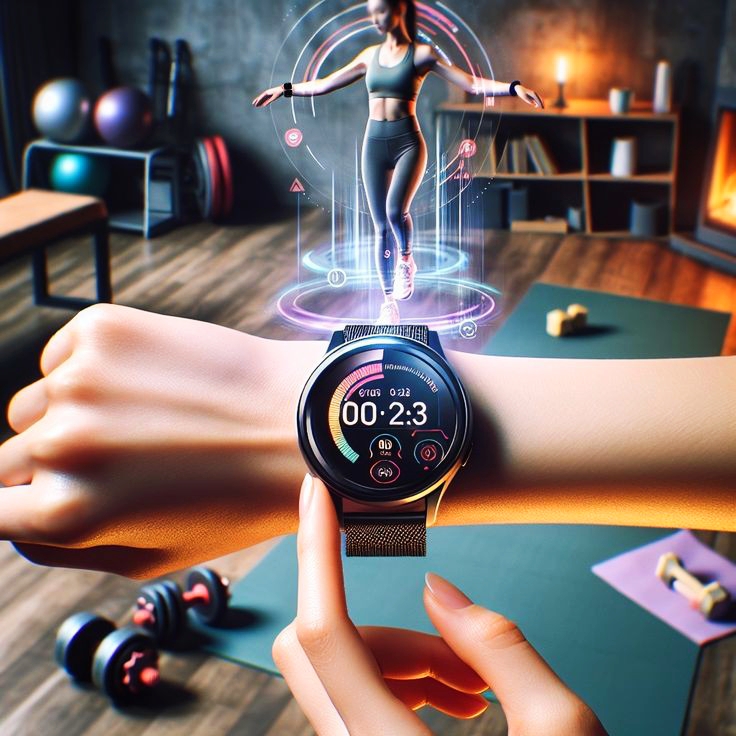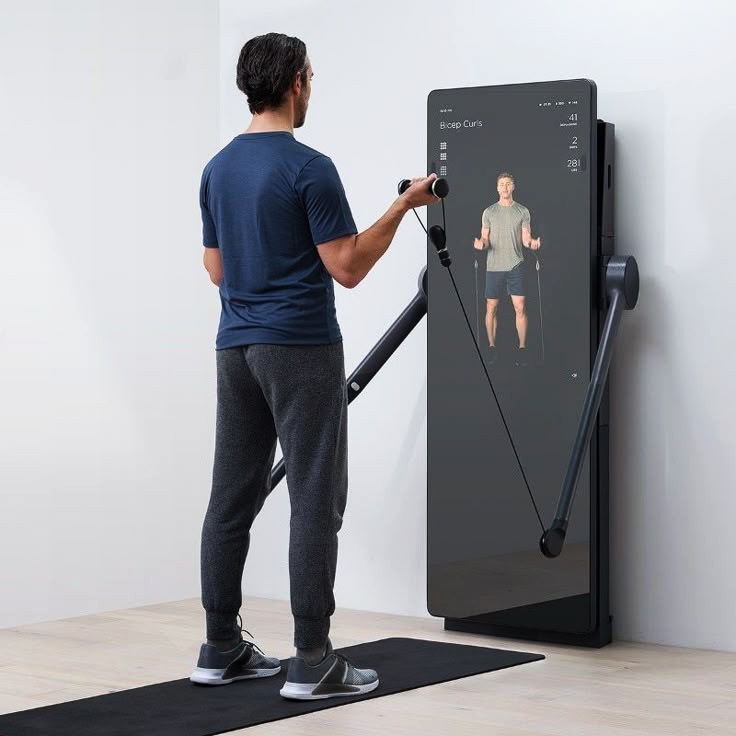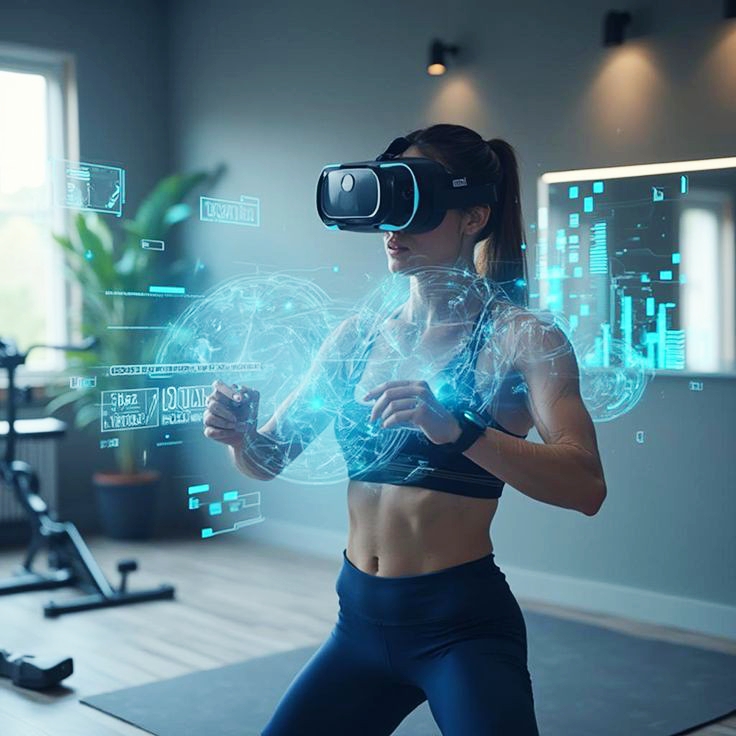Revolutionizing Workouts with Smart Technology!
In 2025, artificial intelligence (AI) has revolutionized the fitness industry, offering personalized, efficient, and engaging workout experiences. AI-powered fitness apps have become essential tools for individuals seeking to improve their health and wellness.
This article explores the top AI-based fitness apps trending in 2025, highlighting their features, benefits, and the impact they’ve had on users’ lives. The Rise of AI in Fitness The integration of AI into fitness apps has transformed how we approach exercise and health. These apps analyze user data to provide customized workout plans, nutrition advice, and real-time feedback, enhancing the overall fitness experience. The demand for personalized health solutions and advancements in AI technology have driven this evolution, making fitness more accessible and tailored to individual needs.

Top AI-Based Fitness Apps of 2025:
1. FitAI:
FitAI offers AI-driven workout plans and real-time form correction. By analyzing user movements, it provides immediate feedback to ensure exercises are performed correctly, reducing the risk of injury and maximizing effectiveness. The app’s adaptive algorithms adjust workout intensity based on user progress, keeping routines challenging and engaging.
2. HealthBot:
HealthBot provides personalized nutrition and exercise recommendations.It considers dietary preferences, fitness goals, and health data to create comprehensive wellness plans.The app’s AI monitors user progress and adjusts recommendations accordingly, ensuring continuous improvement and motivation.
3. WellnessGenie:
WellnessGenie uses AI to track mental and physical health metrics. It offers insights into stress levels, sleep patterns, and overall well-being, providing a holistic approach to fitness. The app’s personalized mindfulness exercises and stress-relief techniques help users maintain mental clarity alongside physical health.

4. SmartFit:
SmartFit integrates wearable data for comprehensive fitness insights. By syncing with devices like smartwatches and fitness trackers, it provides real-time analytics on workouts, heart rate, and calorie expenditure. The app’s AI algorithms use this data to customize fitness plans and set achievable goals.
5. NutriAI:
NutriAI focuses on AI-powered dietary planning and tracking. It analyzes eating habits and offers personalized meal plans that align with fitness objectives. The app’s NutriScanner feature allows users to log meals effortlessly by photographing their food, making nutrition tracking seamless.

6. ExerciseIQ:
ExerciseIQ delivers intelligent exercise routines based on user goals. It adapts workouts in real-time, considering factors like energy levels and performance metrics. The app’s voice-activated coaching provides hands-free guidance, enhancing convenience during workouts.
7. BodySync:
BodySync syncs with smart devices for holistic health monitoring. It aggregates data from various sources to provide a unified view of health metrics. The app’s AI identifies patterns and suggests lifestyle adjustments to optimize well-being.
8. MindFit:
MindFit combines AI with mindfulness practices for stress reduction. It offers guided meditation sessions, breathing exercises, and mental health tracking. The app’s personalized programs help users manage stress and improve mental clarity.
9.CardioAI:
CardioAI specializes in cardiovascular health and fitness tracking. It monitors heart health metrics and designs cardio workouts tailored to individual fitness levels. The app’s real-time feedback ensures users maintain optimal heart rates during exercises.

10. FlexiFit:
FlexiFit offers adaptive yoga and flexibility training programs. Its AI assesses flexibility levels and curates routines that promote mobility and relaxation. The app’s virtual reality integration provides immersive yoga sessions, enhancing user engagement.
Challenges and Limitations of AI in Fitness:
Despite AI’s numerous benefits, it is not without challenges.Some users may struggle with data privacy concerns, as these apps collect and analyze sensitive health information. Additionally, AI lacks the human touch of a personal trainer who can provide motivation, emotional support, and hands-on correction.
Furthermore, while AI algorithms continuously improve, they still have limitations in understanding individual preferences and unexpected challenges, such as injuries or mood fluctuations.Fitness is not just about numbers.Human factors like motivation and discipline also play a crucial role.

Expert Opinions on AI in Fitness:
Fitness experts acknowledge that AI-powered apps are game-changers in making workouts accessible and customized.However, they recommend using these apps as a supplement rather than a complete replacement for professional trainers.
Dr. Sarah Johnson, a sports scientist, explains:
“AI fitness apps are excellent tools for tracking progress and optimizing workouts, but users should combine them with expert guidance to avoid over-reliance on algorithms.”
The Future of AI in Fitness:
Looking ahead, AI will continue to evolve, offering more immersive experiences through augmented reality (AR) and virtual reality (VR) training. AI coaches will become even smarter, considering emotional and psychological aspects of fitness to offer holistic wellness solutions. As AI fitness apps become more advanced, they will likely integrate with other health technologies, including genetic testing and predictive analytics, to create hyper-personalized fitness plans.

Success Stories:
Users worldwide have experienced significant transformations using these AI-powered fitness apps. For instance, Laci Gilbert achieved an 86-pound weight loss with the help of personalized guidance from the Simple app, which offers features like meal logging, intermittent fasting tracking, and daily workout plans. Similarly, Chris Prahl lost 45 pounds in six months using AI-driven coaching, highlighting the effectiveness of these technologies in achieving fitness goals.
Future Trends:
The future of AI in fitness is promising, with trends like virtual reality integration, enhanced AI algorithms for deeper personalization, and the expansion into mental health domains. These advancements will continue to shape the health and wellness landscape, offering more immersive and effective fitness solutions.
Conclusion:
AI-based fitness apps in 2025 have transformed the way we approach health and wellness. With personalized guidance, real-time feedback, and data-driven insights, these apps empower users to achieve their fitness goals more effectively. As technology continues to evolve, the potential for AI in fitness is limitless, promising a future where personalized health solutions are accessible to all.





